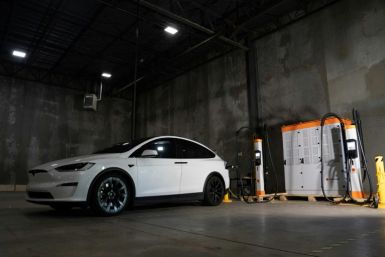Exclusive: JP Morgan adds muscle to metal warehousing money
Investment bank JP Morgan
London Metal Exchange rules allow warehouse companies to release only a fraction of their inventories per day, much less than is regularly taken in for storage, creating long queues to get metal out and guaranteeing rental income.
JP Morgan's aim is to fill its Henry Bath warehousing arm with inventory in the two port cities large enough to rival trading house Glencore's
The Pacorini and Metro facilities in Vlissingen, Netherlands and Detroit combined are estimated to hold around half of the global London Metal Exchange (LME) aluminium stocks which stand at just under 5 million tonnes.
Sources at JPM say the bank is pursuing a strategy to consolidate warehousing in the two locations to create the next Detroit or Vlissingen. A JPMorgan spokesman declined to comment.
They (JPMorgan) are rebuilding stocks again, a high-level industry source in the Netherlands said.
Complaints about long queues, particularly in Detroit, prompted the LME to raise minimum delivery rates - 3,000 tonnes a day for operators with stocks of over 900,000 tonnes in one city - but traders and analysts say the new rules will make little difference when they come into effect in April.
The JPM strategy is likely to inflame consumers and traders already angry about the influence of warehousing companies on the flow of metal.
J.P. Morgan is already preparing to store aluminium in Europe's largest port, Rotterdam, where it has over 30 sheds.
The bank, the largest by assets in the United States, was behind the cancellation of 500,000 tonnes of LME aluminium warrants in Vlissingen, just 50 miles away from Rotterdam, on December 21, traders and warehousing sources told Reuters. Cancelled warrants show metal is earmarked for delivery.
They are taking material from producers or traders, or trying to get it out of the market place - they were lucky to get 500,000 tonnes out of Vlissingen -- and moving it to Rotterdam, said the industry source.
Citigroup analyst David Wilson said there had been a large number of copper cancelled warrants in St Louis and New Orleans, many carried out by JP Morgan.
It wouldn't be a surprise if they wanted to move metal into their own warehouses, Wilson said. The cancellations don't fit in with the underlying demand picture.
It is unclear how much metal JPM wants to eventually hold in the two locations, but to compete with its two closest rivals, it will require millions of tonnes, most likely aluminium which has the most ideal characteristics for long-term storage deals.
Glencore drove Pacorini's emergence as a dominant force in New Orleans and Vlissingen. The Dutch port holds nearly one million tonnes of aluminium.
Traders said Metro holds most of Detroit's 1.4 million tonnes of aluminium stocks, and is ideally located to attract surplus aluminium in North America.
There were other signs in recent weeks that the bank's focus has shifted after traders reported JPM sold a large number of warrants, or ownership titles to metal, to release funds.
JPM have dumped a large amount of warrants or sold very cheaply, a senior source at a warehousing company said. They've let go of a lot of warrants they were holding onto.
CHANGE IN FOCUS
The overhaul of Henry Bath's strategy comes almost two years after JPM bought the unit as part of its $1.6 billion acquisition of RBS Sempra Commodities.
At the time, Henry Bath was the only LME warehousing company attached to a bank or trading house, but all that changed when Goldman Sachs bought U.S.-based Metro, triggering a flurry of trading houses to follow suit.
Those deals have transformed the warehousing industry and increased competition at a time when JPM was focusing on integrating the RBS Sempra assets.
That distraction was necessary, but two years on, the amount of metal in storage in Henry Bath facilities, on which it earns income from rent, has dropped significantly, while Pacorini and Metro have gained ground, market sources said.
With integration over, it is time to try and win back market share, market sources say.
Market conditions for long-term deals, with metal locked up for years earning warehouses consistent rent, also remain in place.
Holders of metal can store surplus metal for years at a time covering their costs of financing and rent because low interest rates cheapen the cost of money while prices rise.
The Federal Reserve's pledge last week to keep interest rates at zero until 2014 will give even more incentive to strike long-term deals.
With interest rates low until 2014, we're in for much of the same. I feel the LME is the big banks' play toy, said a senior executive at a firm that trades on the LME.
(Editing by Veronica Brown and William Hardy)
© Copyright Thomson Reuters 2024. All rights reserved.











